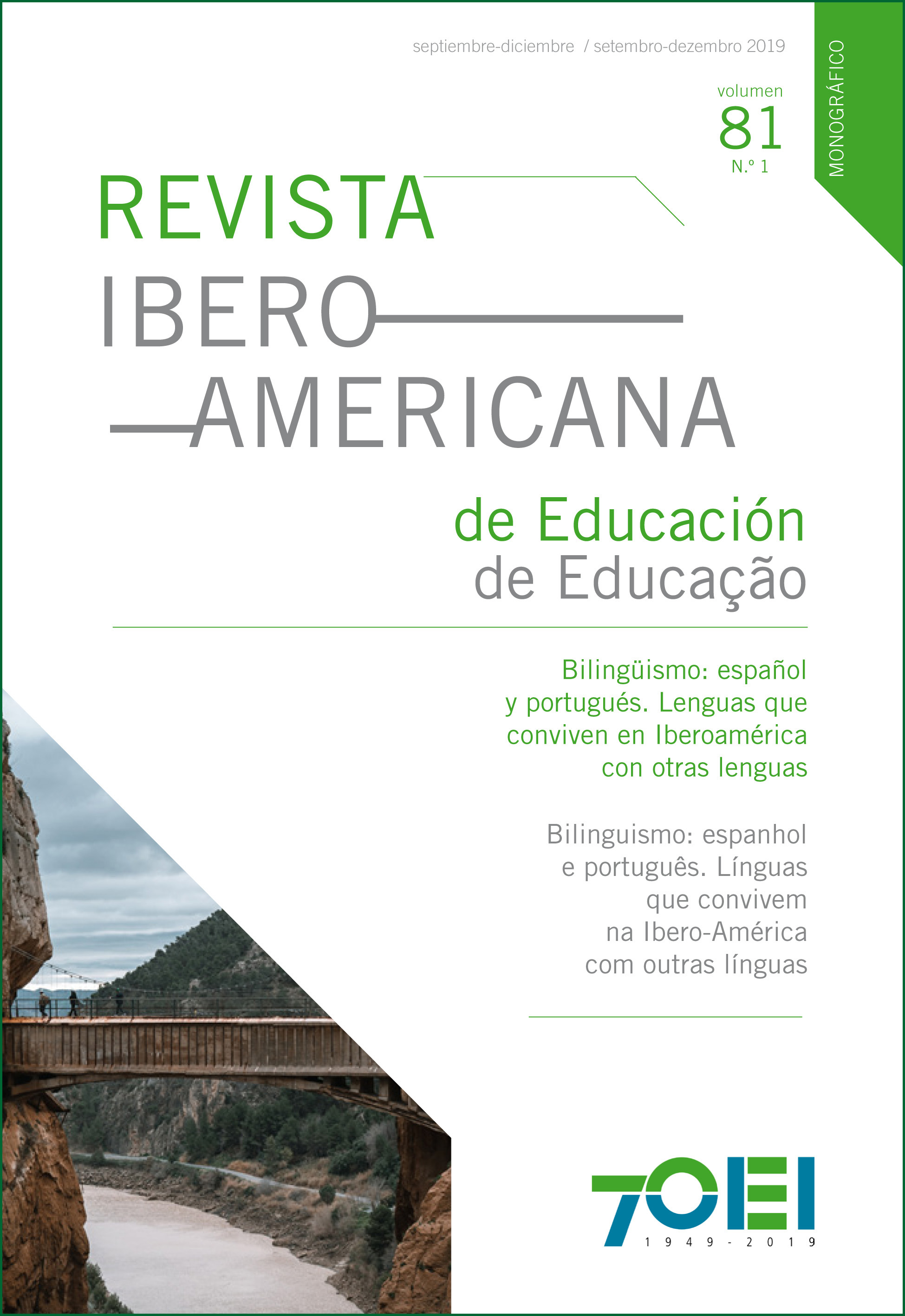Culture in the training for language teachers in Ibero-American context
DOI:
https://doi.org/10.35362/rie8113518Keywords:
culture; teacher training; Portuguese Foreign Language; Spanish Foreign LanguageAbstract
This text aims to discuss the culture in teacher training courses of Spanish and Portuguese foreign languages. Through qualitative research, it is proposed to analyze how two training courses for language teachers - the course of Licenciatura em Letras - Espanhol, located in Brazil, and Profesorado de Portugués, in Argentina - represent the culture. This is done through the analysis of official documents that guide the courses, that is, the Pedagogical Political Project and the syllabus of the Brazilian course and the Course Guide of the Argentine course. The data analyzed indicate that the courses are based on a traditional conception of culture, marked by essentialism and Eurocentrism and expressed by working with the history of nations and the description of their societies. The two contexts are differentiated by the greater focus given to culture and Latin America (represented by Brazil) by the Argentine course. The Brazilian context is marked by the silencing of Latin American culture, which indicates the colonialist heritage in the academic and professional formation of the language teacher.
Downloads
References
Brasil (2002). Diretrizes para a Formação de Professores da Educação Básica, em cursos de nível superior, Diário Oficial da União de 18/1/2002, Seção 1, p. 31. Disponible en https://bit.ly/1DB74aZ
Candau, V. M. (2008a). Direitos humanos, educação e interculturalidade: as tensões entre igualdade e diferença. Revista Brasileira de Educação, 13(37).
Candau, V. M. (2008b). Multiculturalismo e educação: desafios para a prática pedagógica. Moreira, A. F.; Candau, V. M. Multiculturalismo: Diferenças culturais e práticas pedagógicas. Petrópolis, Rio de Janeiro: Vozes.
Cuche, D. (1996) A noção de cultura nas Ciências Sociais. Bauru: EDUSC.
Daher, D. C., y Sant’Anna, V. L. A. (2010). Formação e exercício profissional de professor de língua espanhola: revendo conceitos e percursos. Barros, C. S. de; Goettenauer, E. Espanhol: ensino médio. Organizado por Barros e Goettenauer de Marins Costa. (Coleção Explorando o Ensino). Brasília: Ministério da Educação. Secretaria de Educação Básica, 16, 55-68.
Dumas, M. L. S. (2010). Convênios de Cooperação e Intercâmbios: novos atores, novos cenários. Congresso Internacional de Professores de Línguas Oficiais do MERCOSUL. Foz do Iguaçu.
Dussel, E. (2005). Transmodernidad e Interculturalidad: Interpretación desde la Filosofía de la Liberación. Lander, E. (org.) La colonialidad del saber: Eurocentrismo y ciencias sociales. Perspectivas latinoamericanas. Buenos Aires: Unesco, Ciccus, Clacso.
Hall, S. (2000). Quem precisa de identidade? Silva, T. T. (org e trad.) Identidade e diferença: a perspectiva dos estudos culturais. Petrópolis: Vozes, 103-133.
Kramsch, C. (2017). Cultura no ensino de língua estrangeira. Bakhtiniana, Rev. Estud. Discurso, São Paulo , 12(3), 134-152. Recuperado de https://bit.ly/33OpPcB
Moreira, A. F. B. (2001). A recente produção científica sobre currículo e multiculturalismo no Brasil (1995-2000): avanços, desafios e tensões. Revista Brasileira de Educação, 18, 65-81.
Salomão, A. C. B (2016). Língua e cultura no curso de graduação em Letras: uma reflexão sobre as concepções de alunos, Projeto Político Pedagógico e programas de ensino. Estudos Linguísticos, 45, 474-490.
Santos, B. S. (1997). Uma concepção multicultural de direitos humanos. Contexto Internacional, 23, 7-34. Recuperado de https://bit.ly/2jwI5kL
Saussure, F. de. (2006 [1916]). Curso de linguística geral. 27. Cultrix: Ed. São Paulo.
UNC (s.f.). Plan de Estudios del Profesorado de Portugués. Facultad de Lenguas, Universidad Nacional de Córdoba, Argentina. Disponible en https://bit.ly/2ZuBMou.
UNESP (2007). Projeto Pedagógico do curso de Letras. Faculdade de Ciências e Letras do campus de Araraquara, Universidad Estadual Paulista, Brasil. Disponible en https://bit.ly/31XMEIW
Zakir, M. de A. (2015) Cultura e(m) telecolaboração: uma análise de parcerias de teletandem institucional. Tese (Doutorado em Linguística) – Universidade Estadual Paulista Júlio de Mesquita Filho. São José do Rio Preto.
How to Cite
Downloads
Published
Issue
Section
License
Any authors who publish with this journal accept the following terms:















